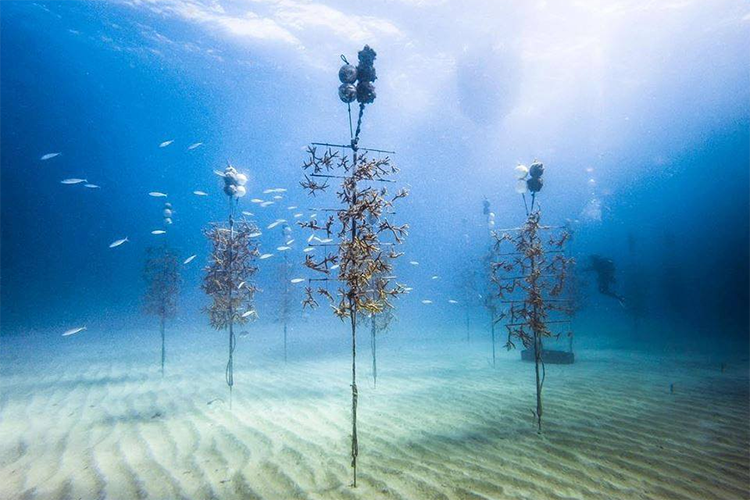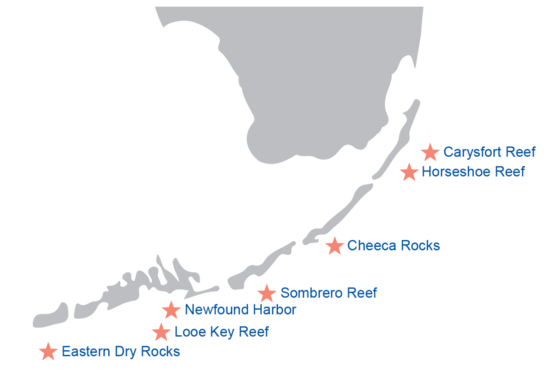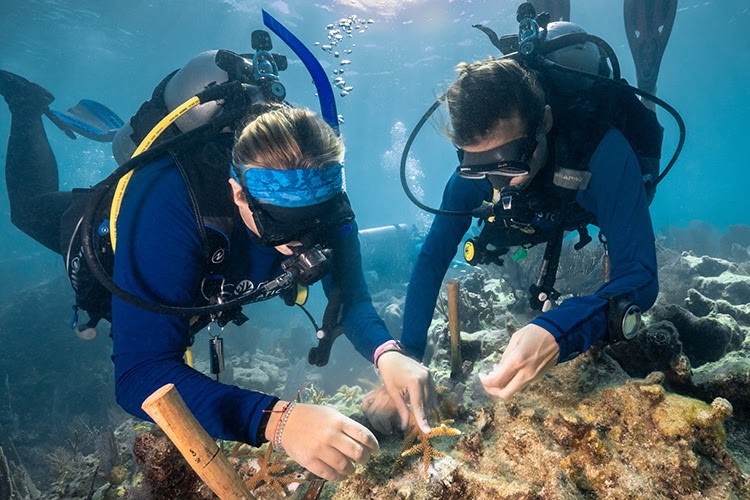In collaboration with state and local partners, NOAA has announced a bold strategy to restore and preserve seven coral reef sites in the Florida Keys, part of an unprecedented, decades-long effort to revitalize the region’s highly diverse and economically valuable marine ecosystem.

The project, Mission: Iconic Reefs, calls for restoring nearly three million square feet of the Florida Reef Tract, about the size of 52 football fields, one of the largest strategies ever proposed in the field of coral restoration.
NOAA’s National Centers for Coastal Ocean Science (NCCOS) supported this restoration planning effort via data analysis and visualization, habitat mapping, and expertise in coral reef ecology, coral restoration planning, and restoration science. NCCOS Beaufort Lab scientists used the latest bathymetric data and satellite imagery to map and define the reef habitats of the seven iconic reef sites. Using habitat maps, coral survey data from NOAA and partners in Florida, and underwater images provided by partners, experts refined reef habitats and defined restoration zones at each site. These zones were used to calculate the restorable area of the iconic reefs, and to determine the number of corals required for the restoration plan. Lab scientists coordinated with local partners at every step of the project: from initial stakeholder meetings, to report-outs, validation of habitat maps, conceptualizing restoration design approaches, and developing data visualizations, maps, and science communications for outreach and reports.
Over the past 15 years, pioneering restoration efforts involving growing and transplanting corals have proven successful in the Florida Keys, setting the stage for this new, large-scale restoration effort at seven reefs within the Florida Keys National Marine Sanctuary: Carysfort Reef, Horseshoe Reef, Cheeca Rocks, Sombrero Reef, Newfound Harbor, Looe Key Reef, and Eastern Dry Rocks. These sites represent a diversity of habitats, support a variety of human uses, span the full geographic range of the Florida Keys, and show a high potential for success.

The restoration effort will incorporate a phased implementation approach over the next 20 years on the seven iconic reefs. The first phase, designed to increase coral cover from two to 15 percent over 10 years, will focus on restoring elkhorn and staghorn corals, fast-growing species that have not been affected by the current outbreak of stony coral tissue loss disease, yet are listed as Threatened species under the Endangered Species Act. Resilient corals of other slower growing coral species will also begin to be incorporated. At these sites, scientists will remove nuisance and invasive species like algae and snails, and reintroduce sea urchins and crabs to help keep the reefs clean and healthy.

The second phase, which is designed to return the reef to its historical coral cover of 25 percent, will focus on adding additional slower-growing, foundational coral species propagated from colonies that have survived or been rescued from bleaching and disease events. The goal is to restore diversity and ecological function to the reefs by returning coral cover at target reef sites to a self-sustaining level.
Collaboration among federal and state agencies, leading coral reef experts, local restoration practitioners, and the Florida Keys community will be key to the success of this ambitious effort. Partners include the State of Florida, Coral Restoration Foundation, Mote Marine Laboratory and Aquarium, The Florida Aquarium, The Nature Conservancy, Reef Renewal and the National Marine Sanctuary Foundation.
